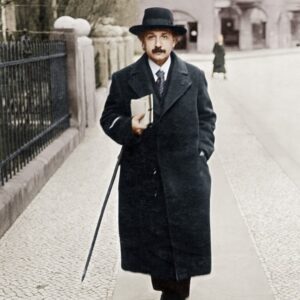Making the Unimaginable, Imaginable: Machine-Learning Augmented With Quantum Computing
When quantum computing and AI collide
Points to note…
+ Machine-learning and are two technologies that have incredible potential in their own right. Now researchers are bringing them together. The main goal is to achieve a so-called quantum advantage, where complex algorithms can be calculated significantly faster than with the best classical computer. This would be a game-changer in the field of AI.
“We could be as little as three years away from achieving a quantum advantage in AI if the largest players in the quantum computing space meet their goals,” says Ilyas Khan, chief executive of Cambridge Quantum Computing.
+ Quantum devices exploit the strange properties of quantum physics and mechanics to speed up calculations. Classical computers store data in bits, as zeros or ones. Quantum computers use qubits, where data can exist in two different states simultaneously. This gives them more computational fire power. We’re talking up to a million times faster than some classical computers.
+ “The more developers and companies that get involved in first solving optimisation problems related to AI and then over time building quantum machine-learning and AI development, the sooner we’ll see even more scalable and robust applications with business value,” explains Murray Thom, vice president of software at D-Wave Systems.
+ “Most importantly, we need a greater number of smart people identifying and developing applications. That way we will be able to overcome limitations much faster, and expand the tools and platform so they are easier to use. Bringing in more startups and forward-thinking enterprise organisations to step into quantum computing and identify potential applications for their fields is also crucial.”
Source: RACONTEUR. NICK EASEN, When quantum computing and AI collide…
Content may have been edited for style and clarity.

